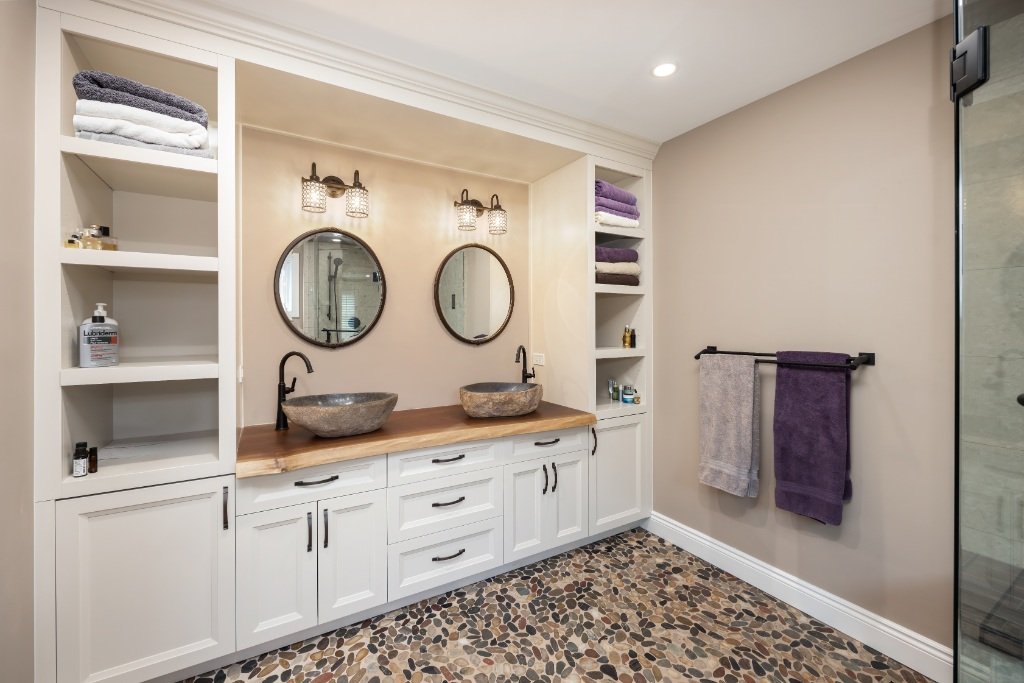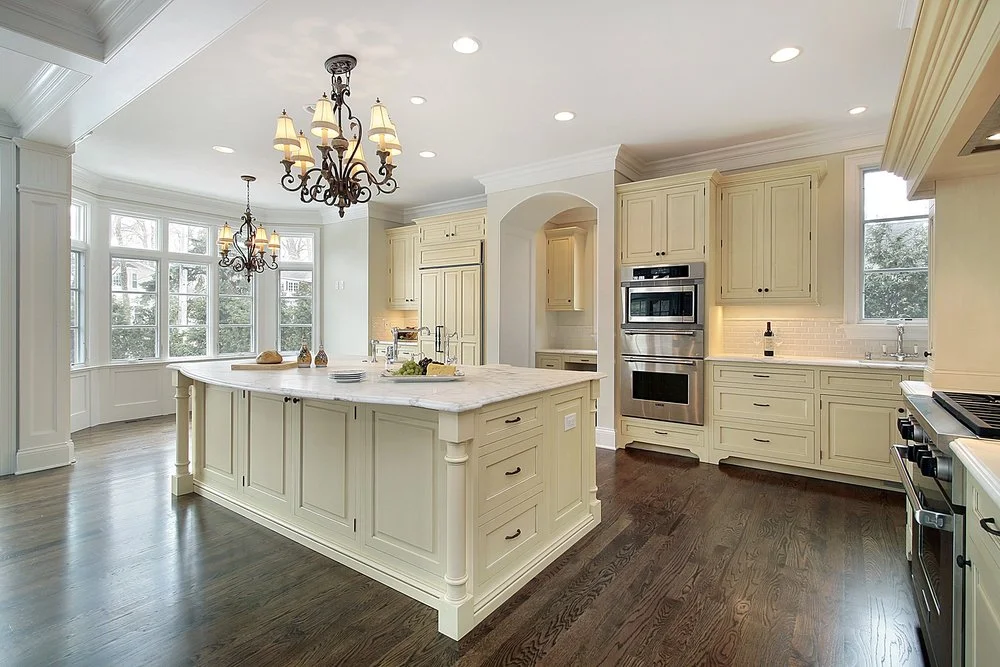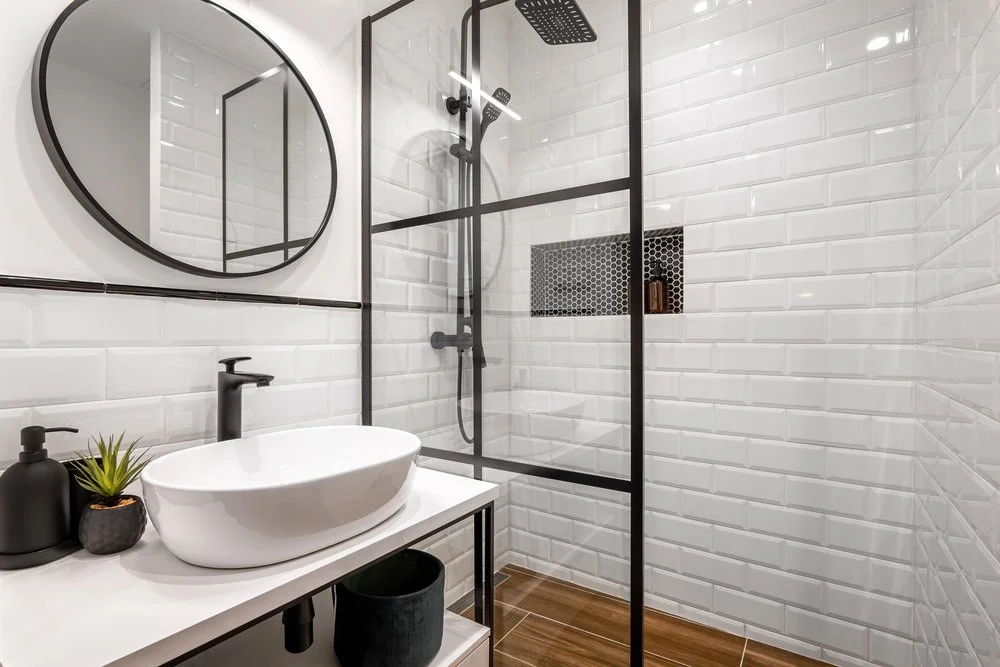7 Mistakes Homeowners Make When Renovating
/You’ve just bought a new house, and you’re all excited about moving in. It is the perfect neighbourhood, and you love the incredible back yard. Even the bedrooms are spacious, with big closets! You bought the house because you had a vision. Much of it was exactly what you wanted, and the rest of it you could make your own. That horribly outdated kitchen and the 1980 bathrooms have to go. The unfinished basement would be a perfect spot for your home office, and you could build a fabulous exercise room at one end of it. You’re super excited about the possibilities and can’t wait to get started.
This type of scenario happens a lot. Clients are anxious to get started on their renovations, and because they can hardly wait, mistakes can happen. We’re going to talk about seven common mistakes we see homeowners make when renovating a home.
Prefer to listen?
1. Starting renovations too soon
It’s always best to live in your home for a while before making any big decisions to renovate. If you've just recently bought a home, you really don’t fully understand the flow of the space, how it’s going to work for your family, or what truly needs to be addressed.
Although you had specific ideas of what you would renovate when you bought the house, once you’ve lived in it for several months, you might have a completely different opinion of what your priorities are and what renovations need to be done first.
The exception to this is when significant deficiencies need to be addressed right away. If you have active leaks or mould growing in the bathroom, you need to get that bathroom renovation done even before you move in. If you run a business from home, you need to create a home office immediately.
2. Underestimating costs
We see this all the time. Most jobs will cost more and take longer than you expect, so always add 20 percent to what you think a project will cost when budgeting. If adding the 20% puts you over budget, then cut back on the job so you can provide a contingency for the project.
As for the timeline, try not to put a deadline on your contractor. No one works well under pressure. What’s more important to you: Getting the job done three weeks earlier or getting the job done right because no one was rushing to meet your timeline?
3. Expecting everything to go according to plan
Murphy’s Law: Anything that can go wrong will go wrong (and sometimes at the worst possible time). We’ve been in the renovation field for over 30 years, and no matter how much we plan or how much our clients prepare, things can go wrong. Sometimes it's an equipment failure. Other times, it’s working on an old building that has more deficiencies than we even imagined. Another time, it might be that personal emergencies happen in our clients' lives and they need us to stop the project for a couple of weeks. You can’t anticipate everything. Be prepared for the unexpected!
4. Going for the lowest quote
The old adage, "You get what you pay for," is so true. Be willing to pay for a good contractor, and be weary of one that’s cheap and available right away. For more information on how to select a reputable contractor, read my full blog post here.
5. Hiring a good professional that’s not a good fit
Just because someone is good at what they do doesn’t mean they are the right person for the job. Lots of contractors are experienced and produce top-quality work, but not all of them are the right fit for you and your renovation project.
We worked with a client who was planning to hire her neighbour to renovate her kitchen. She wanted him to expand the size of the room and design and install a new kitchen for her. She just needed to hire us to do the electrical and plumbing.
The project would have been a nightmare! Her neighbour worked for a builder, but what he did was finish carpentry, which is a very specialized type of carpentry. He built all of the stunning circular staircases in all of the high-end custom homes the builder made. Her neighbour had incredible skill, but it was very specialized. She asked us to talk to him about the project before she finalized anything. He admitted that he never would have accepted her offer for work. Although she knew he worked for a builder and his work was very much in demand, his skill set didn’t even afford him the necessary skills to complete the job she wanted done. She ended up hiring him to build stunning kitchen cabinets, but hired MTBS to do the rest of the construction!
6. Not asking for references
If the contractor you’re considering working with doesn’t provide you with references, make sure you ask for them. Specifically, it would be a good idea to ask to speak to some or all of the last five people they've worked for. These references will have experienced the contractor at their current level of achievement and staff.
You could even ask the contractor you are seriously considering if you can visit one of their current job sites while staff is on site working. This will, of course, have to be cleared with their current client, but this will really give you an idea of how clean they keep the job site, what type of vibe you get from the staff, etc.
7. Making too many changes along the way
We are always open to adding or deleting items from an original contract. It’s very common for clients to start getting a better vision of the space as it develops and then suddenly realize they want an additional two pot lights or an extra linen tower made to match the vanity. It is never a problem to create a change order.
However, too many changes can get confusing and leave the contractor frustrated. They’ve allotted a certain amount of time to your project, with likely an extra week or two for the unexpected. However, continually adding additional items or deciding to change the location of something after it’s installed can not only mess with your contractor’s schedule but also seriously mess with your budget.
We worked with a client a couple years ago who was adding or deleting something to or from the contract almost daily! It got to the point that we were never sure exactly what we were supposed to be doing. One day, two receptacles were added to the living room, and the next, there was only one receptacle. Then, three days later, it was back to two. This type of thing was constantly happening because the client was second-guessing herself about what she really wanted. She didn’t trust the original decisions she made (even though we planned this project over a span of 10 months and 12 meetings).
Talk to your contractor if you’ve got concerns or apprehensions about what’s happening. Sometimes just a brief meeting will allay concerns and help the project run smoother.
There are so many nightmares we’ve seen over the years from mistakes homeowners make when renovating. Stay tuned for our next blog post when we share eight more mistakes we’ve encountered over our 30 years of renovating homes.

























